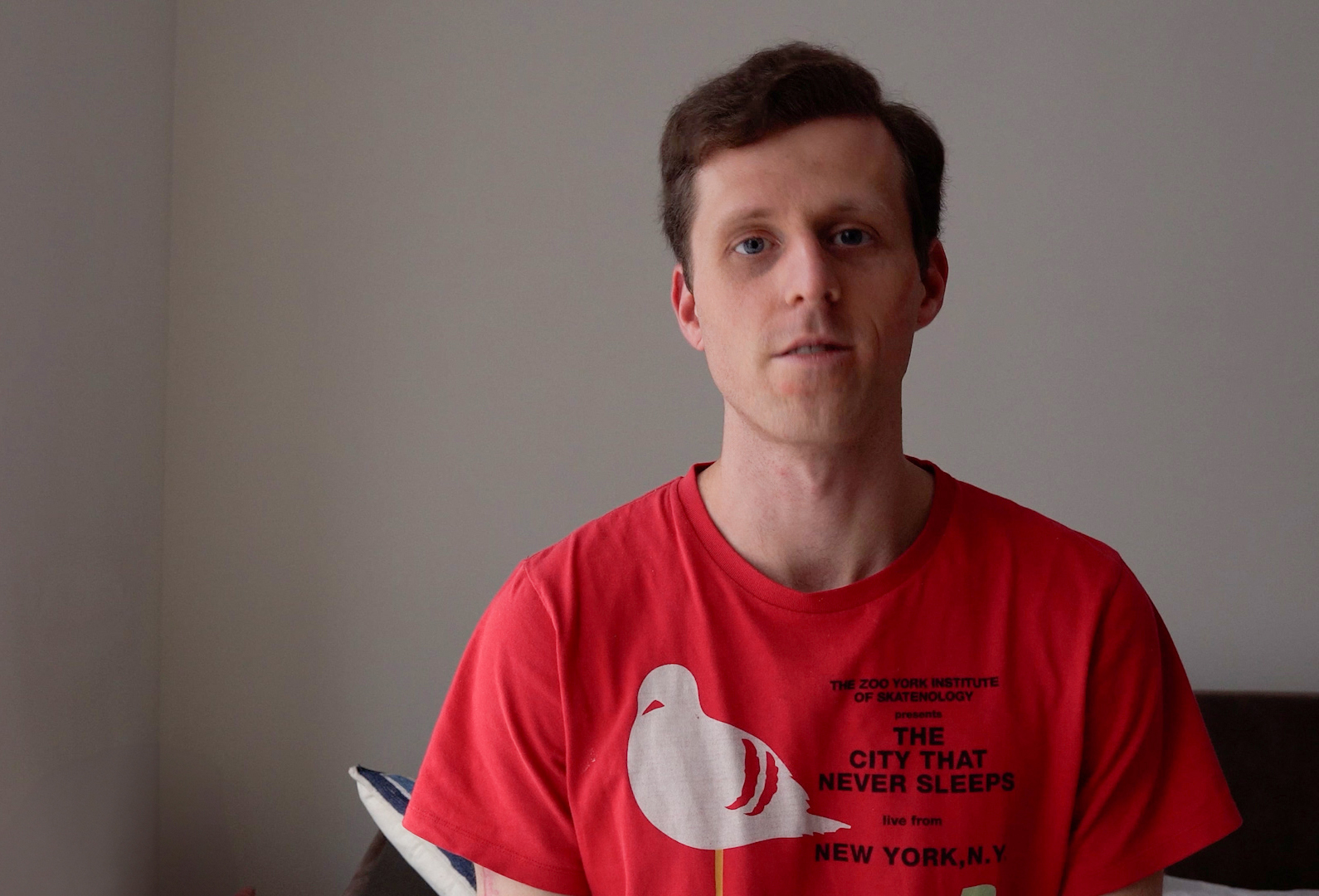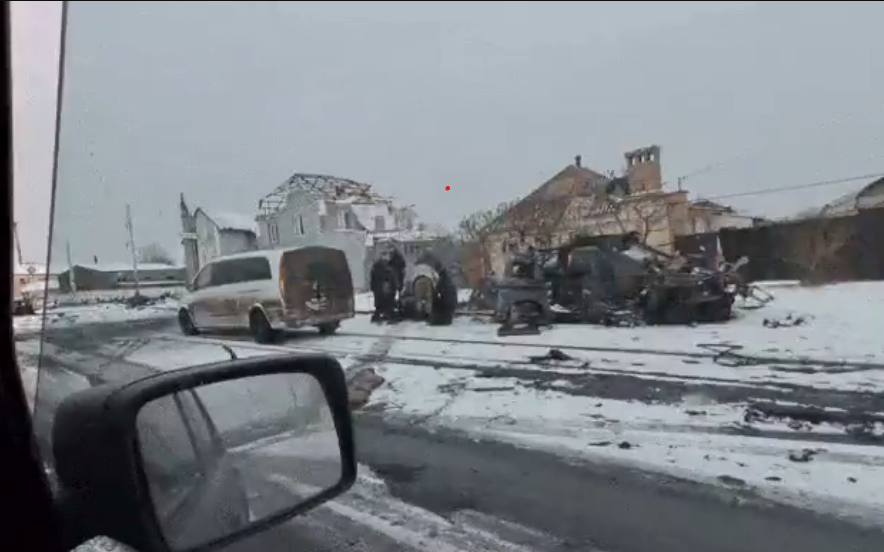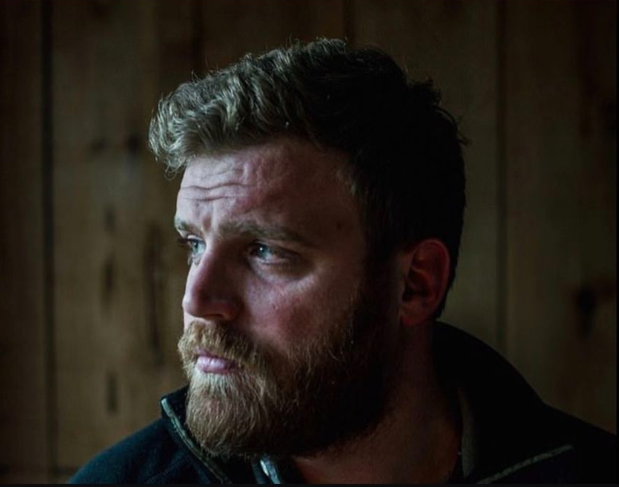One step away from death — the story of volunteer Maksym Vainer
Since the invasion began, I have lived mainly in Zaporizhzhia. Most people from the occupied territories went through Zaporizhzhia, especially from Mariupol. I was a volunteer at the central hub that everyone passed through. There were admissions, coordination, and assistance. I have collaborated with many foreigners. I was on a volunteer mini-tour to Kyiv, Lviv, and Odesa in the autumn. I was the coordinator, and I organized a lot of things.
One of my acquaintances is permanently based in Kramatorsk with his volunteer company: they are engaged in civilian evacuations and bringing help — basic, standard things. Immediately after the New Year, he said that a team was coming — the American non-governmental organization Global Outreach Doctors, which would deal with medevacs: medical care and evacuations. Both soldiers and civilians. They said they needed a coordinator and an interpreter. I completed basic medical training because everyone does everything in such tiny organizations. So we started organizing medical evacuations, helping the military coordinate with military medics. It was the Bakhmut direction, Soledar.
The situation was and remains difficult, so we had ambulances. Two ambulances which were modern, more or less good. British, if I’m not mistaken. We traveled to the district’s settlements to provide medical assistance and see what was there.
Siversk made a strong impression when we were there. There was nothing alive, but people live there even now. As far as I know, they live there.
We found a hospital still working but in awful, challenging conditions. Only the deputy chief physician, another doctor, and nurses remained there — four people in total. They functioned In harsh conditions: without electricity, without anything. The generator was working, and we agreed to bring fuel to maintain the generator work; we were also able to help with medicines. Heroic people were out there — what can I say… They had almost no support from the Ministry of Health. In principle, they were left to the mercy of fate. However, I don’t know all the details. Maybe they should have evacuated, I don’t know. But they worked: there were elderly people, and a few women had recently given birth.
In general, the closer to the war zone, the worse. There was one village where something was constantly happening. Some people stayed, but then such an Armageddon began there that they began to leave. The place is called Paraskoviivka. We even twice picked up civilians walking along the highway from Paraskoviivka toward Kramatorsk or somewhere else. Once, we met a family on bicycles — four of them. We said: “Stop! Let’s pick you up.” There was a shelter in Sloviansk, in the first hospital. We took them there and ensured everything would be fine with them. One day, a man was walking at night. A rocket flew into his house that day, and he was wounded, not much, but he decided to go, and we picked him up.

We were in Bakhmut: not our whole team, but four people. Peter, me, and a few weeks later, another guy joined us — Roma. And another girl, an American paramedic, Ray. We had another friend with us: an Australian driver. There were five of us, and we went to Bakhmut to see what was going on. We started building at least some kind of medical infrastructure because there was absolutely nothing for civilians there. If something happens to you in Bakhmut, and you are a civilian, all you can count on is that someone will take you out. And that’s it. The military is often unable to do much for various reasons. Also, something can happen where there is simply no one, and no one knows something happened to you. So, I wanted to do something to help.
We were in one of the “Invincibility points” that still existed then. There were five. Now, I don’t know how many remain. This one was at the bus station in Bakhmut. We were solving some of our affairs when a Ukrainian military man ran in and said there was shelling nearby and civilians were wounded. If there is a doctor — help, please. We went, and three people from another team of foreign doctors went beside us. There were two Norwegians and one Estonian. We had two cars: me, Pete, and Ray in one, and the second was a minivan with an Australian and Roma. We arrived at the site of the attack. Indeed, an elderly woman was lying on the curb near the roadway; I thought she was around seventy. She was bleeding. Nearby sat a man [civilian], about fifty years old. Visually, he was not hurt so badly and tried to help her.
The Australian put his small bus a little farther. Our car got closer to her. We had a Mercedes Vito. The Estonian dropped off the Norwegians and went to re-park because all the vehicles stood too close together. When he drove by, his DVR took a few shots — the moment the rocket hit. We all got out of the car: the doctors — Pete, Ray, and someone else. The Norwegians immediately went to help this woman. There were already four or five people around her. My participation was not required, so I went and stood a little further to observe what was happening.
And literally, in the next second, everything happened — they hit us with a rocket. It wasn’t a mortar attack but a Kornet missile, the anti-tank-guided Russian rocket.
It hit directly our Mercedes car, and this explosion killed Pete. I didn’t realize then, and later, they told me about a dozen more mortar bombs had arrived. That’s it.

I lost consciousness for about half a second. I didn’t even fall but was half-bent. I woke up and realized that something terrible had happened. I immediately saw there was blood flowing from my leg. It also flowed from the shoulder and face. It was “quite an interesting state”. I began to gather information about what was happening around me. I realized that we were hit by a rocket. I saw the Australian with our second bus standing unharmed a little further. I noticed that someone was lying dead, it was Pete. A civilian also died, as I later found out. I saw that Roma was alive. Ray was alive, too. I waved them to the bus so we could get together because there was a task to take out all the living. Everyone got into the bus. I asked Roma what happened to Pete, and he confirmed Pete was dead.
We left Bakhmut, and there was the first checkpoint at the entrance. From there, we were escorted to the location of one of the brigades, which was based nearby. We were patched up there. Interestingly, Pete and I just came there on some coordination issues five days before this incident. They patched us up, immediately took us to Kramatorsk, performed some kind of operation there, and took us to the Dnipro the next day. It happened on 2 February. On the fourth, I was already in the Dnipro.
— Excuse me, but were you able to take Pete’s body?
— Yes, we took him away.
— Later or right away?
— Maybe the same day, in the evening when it was quiet.
When the rocket hit the car, it caught fire. It was not the most pleasant sight. We took away the body, and his wife, Alex, came. We met when we traveled from Kramatorsk to Kyiv with Pete’s body to be cremated because it was his will. She stopped by the Dnipro, and we saw each other and talked. Then we all left for Kyiv and cremated him. Then, with the ashes, she left for America.

No one will go to Ukraine for money because there is no money here. They at home earn much more just at any job. I talked with them, and they are mainly motivated people.
They worry about everything that happens here and feel they can contribute. That’s why they come: many die, and the losses are tremendous. Both among military personnel and humanitarian volunteers, especially among those who work in the Donbas.
How did your treatment go? As I understand it, is it still going on?
Yes. I had the primary wound on the left thigh where the fragment went through. The wound is large, and the small femur is broken. But it’s not so scary. The bone will heal pretty quickly. The wound is healing, and the process is going well. More or less normal. It’s just a big wound, that’s all. There are also various, as they say, blind wounds to the left leg and right shoulder. But all the bones are intact; just a piece of flesh is missing and will heal soon. There is also barotrauma of the right ear: holes formed in the eardrum due to acoustic shock. Just yesterday, I had an operation, and they were sealed.
Do you have some hearing problems or not?
The noise is still there because it is only after the operation. But within a month, everything should be normalized and healed. Everything will be fine.
What are the plans?
Continue, probably. My comrades are already calling me to come here and there. We’ll see.
Were there thoughts that you were actually on the verge of death?
I was literally one step away from death. There were more chances that I would die.
There were no thoughts to finish everything?
Entirely stop — no. If not in one specific way to help the common cause in Ukraine and the Ukrainian society, then in another. It’s 100%. Even now, translation or coordination goes through me — just phones and laptops. I don’t need to be anywhere physically. But we will see.